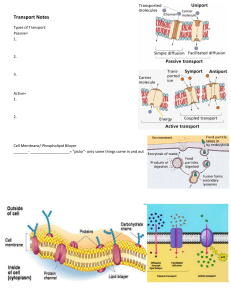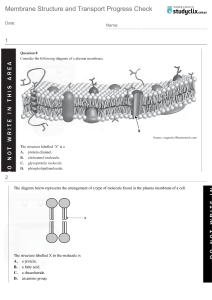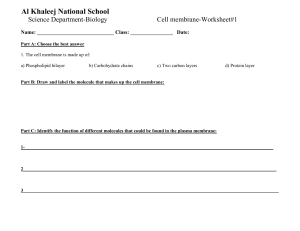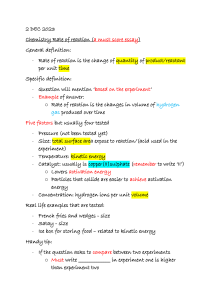General Biology 1 Unit Test - Cell Biology & Meiosis
advertisement
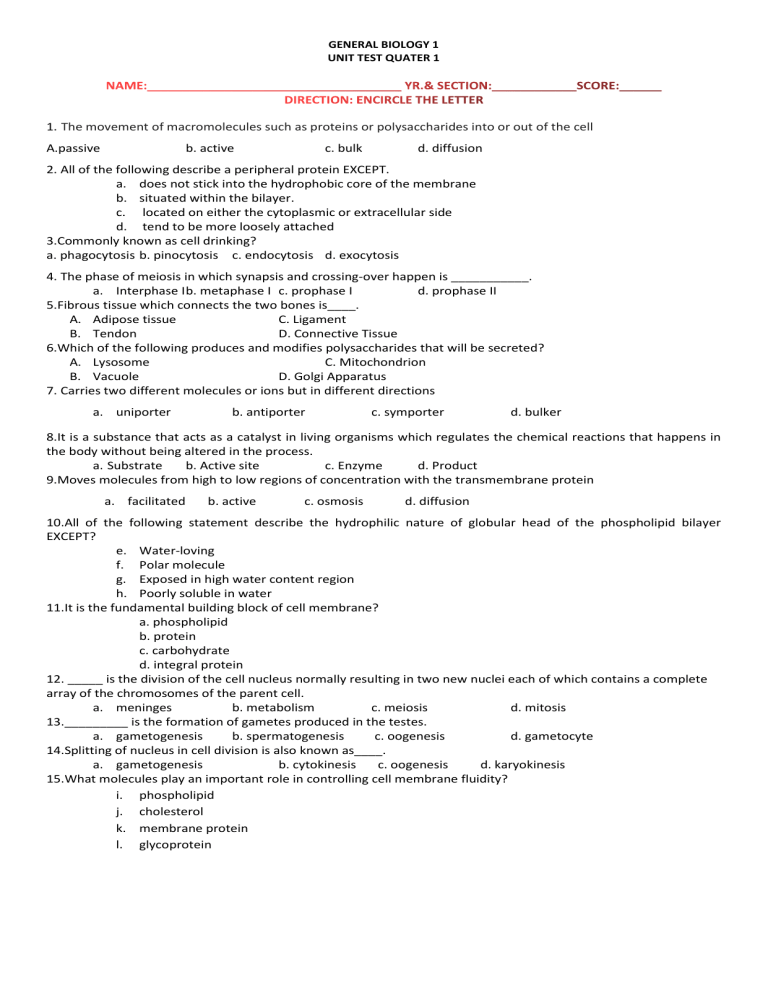
GENERAL BIOLOGY 1 UNIT TEST QUATER 1 1. The movement of macromolecules such as proteins or polysaccharides into or out of the cell A.passive b. active c. bulk d. diffusion 2. All of the following describe a peripheral protein EXCEPT. a. does not stick into the hydrophobic core of the membrane b. situated within the bilayer. c. located on either the cytoplasmic or extracellular side d. tend to be more loosely attached 3.Commonly known as cell drinking? a. phagocytosis b. pinocytosis c. endocytosis d. exocytosis 4. The phase of meiosis in which synapsis and crossing-over happen is ___________. a. Interphase I b. metaphase I c. prophase I d. prophase II 5.Fibrous tissue which connects the two bones is____. A. Adipose tissue C. Ligament B. Tendon D. Connective Tissue 6.Which of the following produces and modifies polysaccharides that will be secreted? A. Lysosome C. Mitochondrion B. Vacuole D. Golgi Apparatus 7. Carries two different molecules or ions but in different directions a. uniporter b. antiporter c. symporter d. bulker 8.It is a substance that acts as a catalyst in living organisms which regulates the chemical reactions that happens in the body without being altered in the process. a. Substrate b. Active site c. Enzyme d. Product 9.Moves molecules from high to low regions of concentration with the transmembrane protein a. facilitated b. active c. osmosis d. diffusion 10.All of the following statement describe the hydrophilic nature of globular head of the phospholipid bilayer EXCEPT? e. Water-loving f. Polar molecule g. Exposed in high water content region h. Poorly soluble in water 11.It is the fundamental building block of cell membrane? a. phospholipid b. protein c. carbohydrate d. integral protein 12. _____ is the division of the cell nucleus normally resulting in two new nuclei each of which contains a complete array of the chromosomes of the parent cell. a. meninges b. metabolism c. meiosis d. mitosis 13._________ is the formation of gametes produced in the testes. a. gametogenesis b. spermatogenesis c. oogenesis d. gametocyte 14.Splitting of nucleus in cell division is also known as____. a. gametogenesis b. cytokinesis c. oogenesis d. karyokinesis 15.What molecules play an important role in controlling cell membrane fluidity? i. phospholipid j. cholesterol k. membrane protein l. glycoprotein
